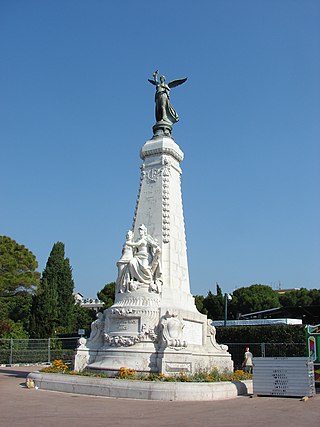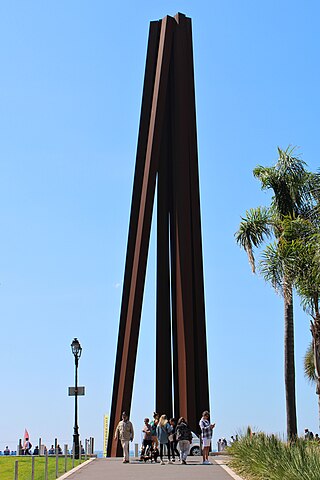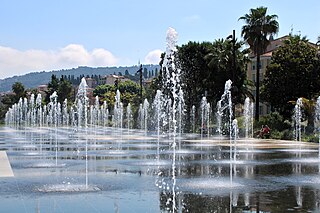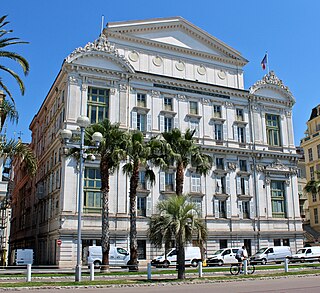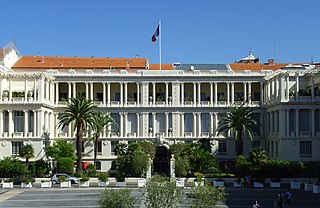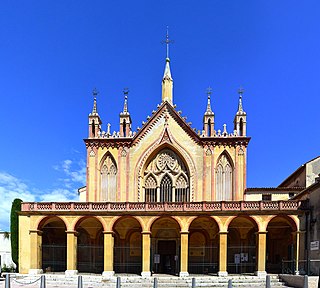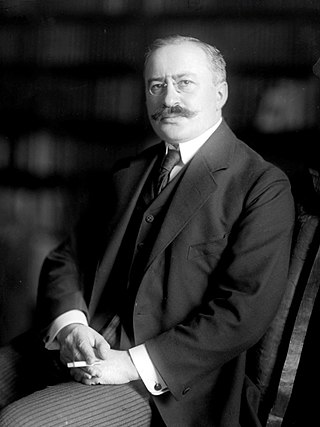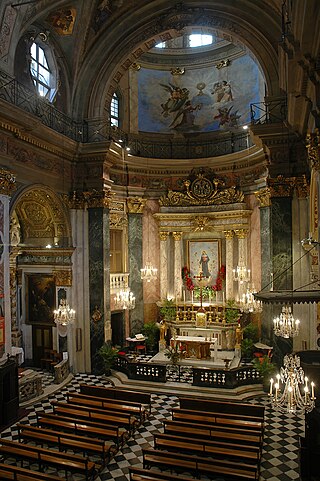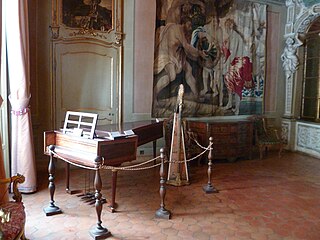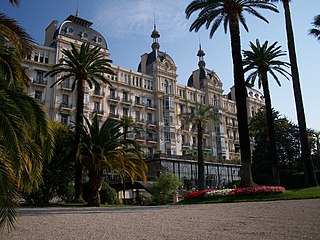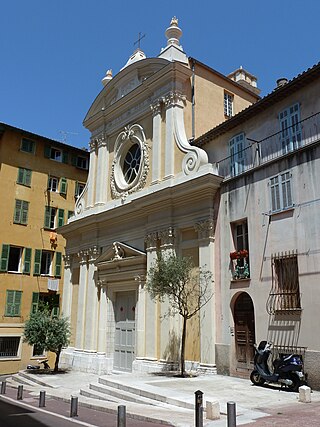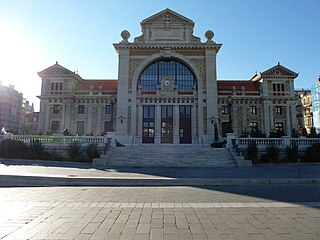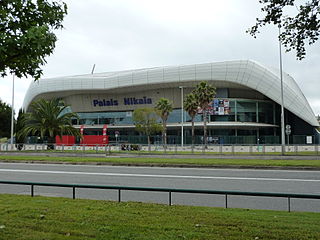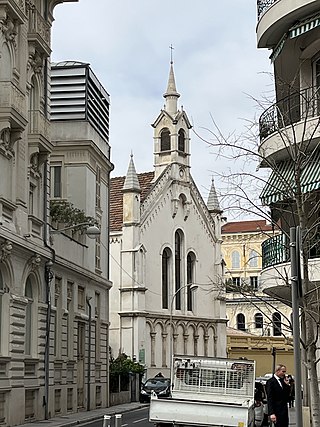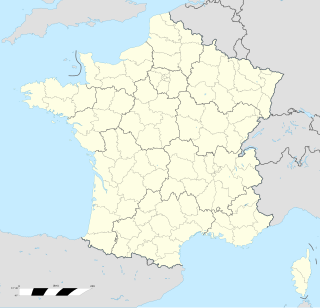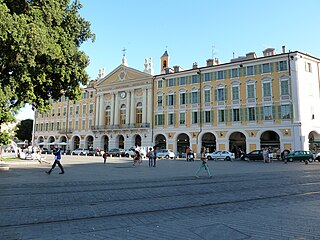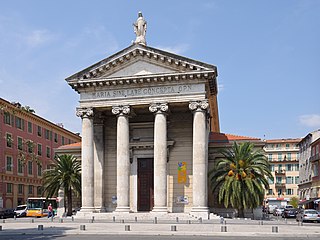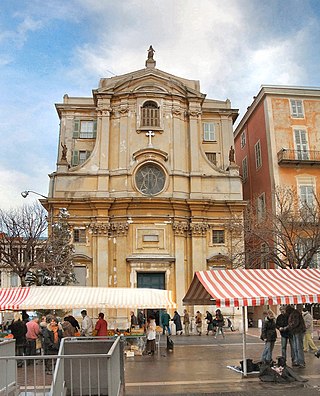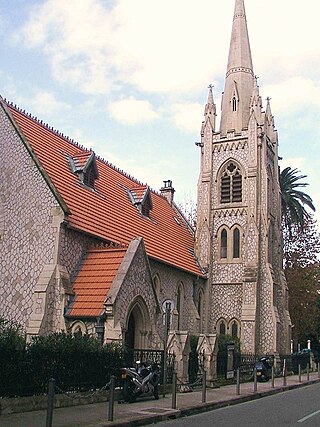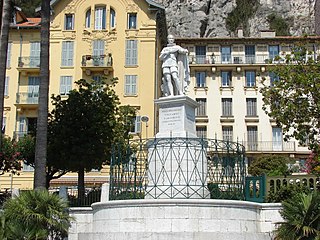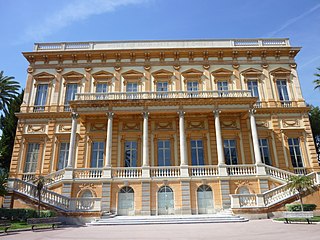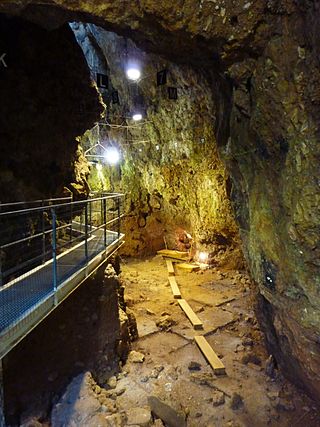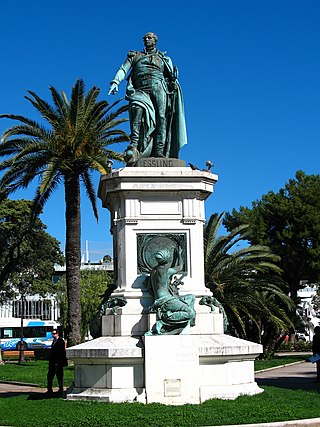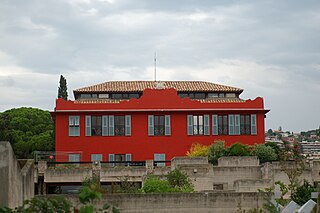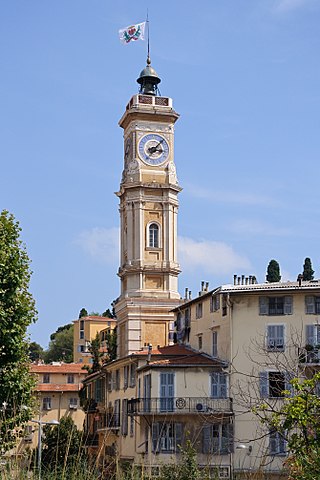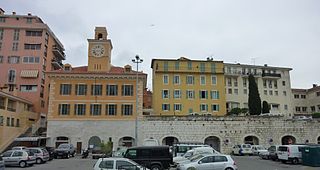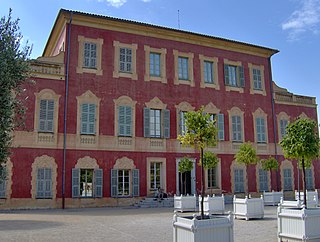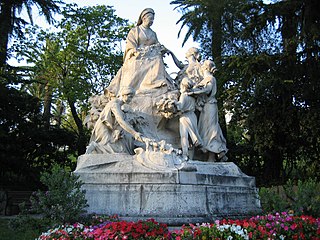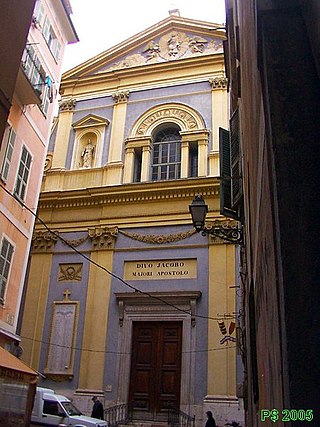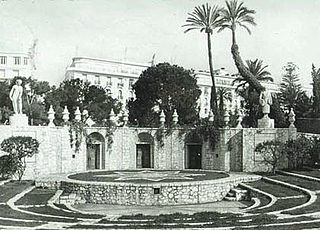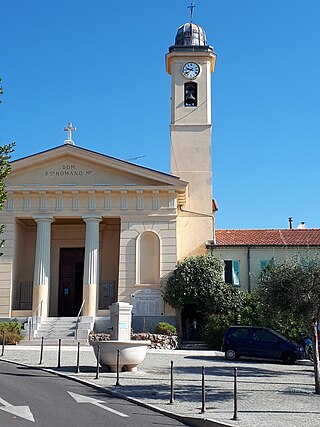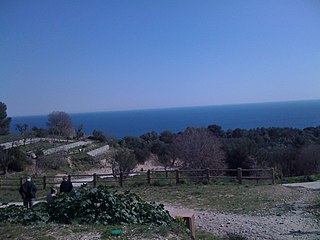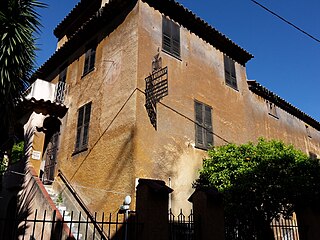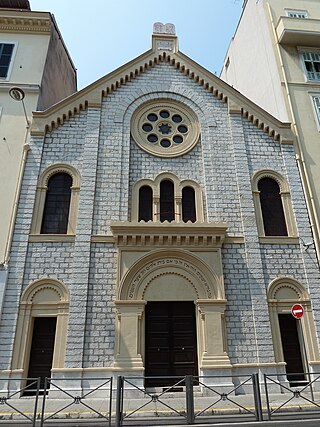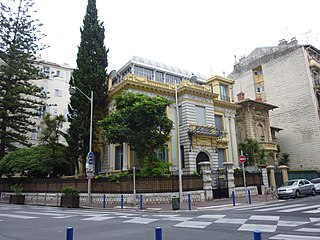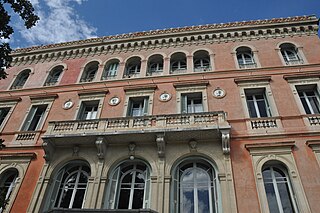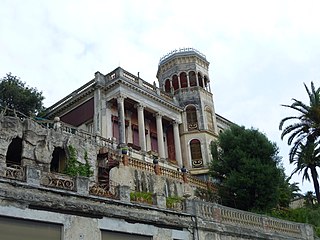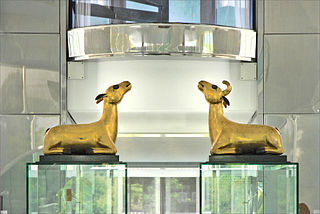41 Sights in Nice, France (with Map and Images)
Legend
Premium Sights
Book tickets, guided tours and activities in Nice.
Guided Free Walking Tours
Book free guided walking tours in Nice.
Welcome to your journey through the most beautiful sights in Nice, France! Whether you want to discover the city's historical treasures or experience its modern highlights, you'll find everything your heart desires here. Be inspired by our selection and plan your unforgettable adventure in Nice. Dive into the diversity of this fascinating city and discover everything it has to offer.
Sightseeing Tours in NiceActivities in NiceThe monument to the Centenary of the Reunion of Nice with France, by André-Joseph Allar, was inaugurated on 4 March 1896 in the Albert-I Garden. It celebrates the centenary of the annexation of Nice to France in 1793. The bronze statue represents a winged victory who swears an oath of loyalty. The marble group is an allegory of Nice giving itself to France.
Neuf lignes obliques is a steel monument on the Promenade des Anglais, by French artist Bernar Venet. It was commissioned to mark the 150th anniversary of the 1860 annexation of the County of Nice by France.
3. Promenade du Paillon
The Promenade du Paillon is a green corridor located in Nice and designed by the landscape architect Michel Péna. It connects the Promenade des Anglais to the National Theatre by running along Avenue des Phocéens on one side followed by Boulevard Jean-Jaurès and Avenue de Verdun on the other side followed by Avenue Félix-Faure over a length of 1.2 km. It passes next to the open-air theatre and the Albert-Ier garden and follows the course of the covered Paillon river.
4. Opéra de Nice
The Opéra de Nice is the principal opera venue in Nice, France, which houses the Ballet Nice Méditerrannée and the Nice Philharmonic Orchestra. It offers three types of performances: operas, ballets and classical music concerts.
5. Lycée Masséna
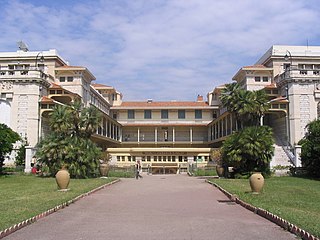
The Lycée Masséna is a French secondary and higher education institution, located at 2, avenue Félix-Faure in Nice, with an annex at 8, rue de l'Hôtel-des-Postes. The principal is Philippe Tamisier. In addition to secondary school, the high school hosts nine preparatory classes for the grandes écoles.
6. Palais de la Préfecture, ancien palais des rois de Sardaigne
The prefectural palace of Nice, located in Old Nice, is currently the seat of the prefecture of the Alpes-Maritimes and the residence of the prefect. Until the County of Nice was annexed to France in 1860, the building was a royal residence of the kings of Piedmont-Sardinia. Prior to 1720, it was the palace of the Dukes of Savoy in Nice but almost nothing remains of the original building given the extensions and profound transformations of the palace in the nineteenth and twentieth centuries.
7. Musée Franciscain
The Cimiez monastery is a Franciscan monastery located on Cimiez hill in Nice and built on the basis of the Notre-Dame de Cimiez chapel built by the Benedictine monks of the Saint-Pons abbey which is made for the first time In 1010. In 1546, the latter sold the chapel to the minor brothers of the observance who subsequently enlarged and transform it.
8. Theodor Wolff
Theodor Wolff was a German writer who was influential as a journalist, critic and newspaper editor. He was born and died in Berlin. Between 1906 and 1933 he was the chief editor of the politically liberal newspaper Berliner Tageblatt.
9. Église de l'Annonciation
The Church of the Annunciation, commonly known as the Church of Sainte-Rita, is a baroque church located in Old Nice at 1 rue de la Poissonnerie. It also bears the names of: Saint-Jaume chapel, Saint-Jacques-le-Majeur, and Sainte-Rita chapel.
10. Palais Lascaris
The Palais Lascaris is a seventeenth-century aristocratic building in Nice, France. Currently, it is a musical instrument museum. Located in the old town of Nice, it houses a collection of over 500 instruments, which makes it France’s second most important collection after the Musée de la Musique de la Philharmonie in Paris.
11. Regina
The Excelsior Regina Palace is the name given to a luxury hotel in Nice between 1897 and 1935. It is located on the hill of Cimiez on the boulevard of the same name, and was converted in the 1930s into an apartment building.
12. Chapelle Sainte-Croix
The Sainte-Croix chapel in Nice, known as the chapel of the white penitents, was built by the Minims from 1633. Located on rue Saint-Joseph in Old Nice, it belongs to the archconfraternity of white penitents. The chapel was partly rebuilt in 1765-1767 under the direction of the architect Antoine Spinelli. The façade, characteristic of the seventeenth-century style, was retouched in 1875. The bell tower, in baroque style, also dates from 1765-1767.
13. Bibliothèque Raoul Mille
The Gare du Sud is a food court in the Libération quarter of the city of Nice in south-east France. It has been constructed within the buildings of the former railway station that bore the same name. The station was the terminus of the metre gauge railway of the Chemins de Fer de Provence rail company which links Nice to Digne-les-Bains in the department of Alpes-de-Haute-Provence. The line, known as the Train des Pignes because it follows a scenic route through the mountains, has been served by a nearby replacement Nice terminus station, the Gare de Nice CP station, since the original station was closed in December 1991. The Gare du Sud site then remained derelict until 2013, when the station building was renovated and converted into a library.
14. Palais Nikaia
Palais Nikaïa is an indoor concert hall and multi-purpose facility located in Nice, France. It opened on 4 April 2001, and is located at a five-minute drive from Côte d'Azur International Airport. The name Nikaïa derives from the ancient Greek settlement, predecessor of today's Nice. In addition to concerts, Palais Nikaïa can host variety shows, sporting events and conventions.
15. Église Protestante Unie de la Transfiguration
The Église de la Transfiguration is a Protestant church in Nice, France. The Greek-style church building, inaugurated on June 3, 1866, is located at 4 rue Melchior de Vogüé, near Boulevard Victor-Hugo.
16. Monument aux morts de Rauba-Capèu
The Rauba-Capeù war memorial is located in Nice, on the seaside road, at the level of the Rauba-Capeù quay, taking its name from the part of the Promenade des Anglais, near the monument, where the wind can be so strong that it "steals the hats".
17. Chapelle du Saint-Sépulcre
The Chapel of the Holy Sepulchre or the Most Holy Sepulchre or of Our Lady of the Sincaïre or the Blue Penitents of Nice was built by the architect Antoine Spinelli on Place Garibaldi, from 1782 to 1784. It belongs to the Venerable Archconfraternity of the Blue Penitents of the Holy Sepulchre. The façade is in both neoclassical and late baroque style for the upper part and the interior. The balcony was added in 1841.
18. Église Notre-Dame du Port
The Church of Notre-Dame-du-Port in Nice is a neo-classical style church, inaugurated in 1853 on the Place Île de Beauté of the Port Lympia in Nice, in the port district, facing the Baie des Anges. The church has been listed as a historical monument since 1991, as part of the architectural ensemble built in the nineteenth century on Place Île-de-Beauté. It is also part of the 2021 UNESCO World Heritage Listing of the city of Nice.
19. Chapelle de la Miséricorde
The Chapel of Mercy, known as the Chapel of the Black Penitents, formerly the church of Saint-Gaétan, is a Catholic place of worship, located on the Cours Saleya in Nice. It is considered the masterpiece of the Nice Baroque.
20. Église Protestante Unie de Nice Saint-Esprit
The Reformed Temple of Nice, or Temple Saint-Esprit, formerly the American Episcopal Church Holy Spirit Church, is a Protestant Reformed place of worship located at 21 boulevard Victor-Hugo in Nice. The parish is attached to the United Protestant Church of France. It has been listed as a historical monument since 2020.
21. Église de la Madone des Grâces
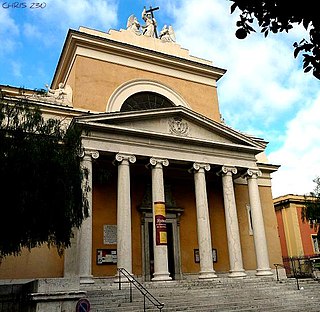
The Church of Notre-Dame-des-Grâces in Nice, also known as the Church of the Vow, was built in Nice from 1836 to 1852. In neoclassical style, it is located on the Saint-Jean-Baptiste wharf, hence the fact that it is sometimes referred to as the Saint-Jean-Baptiste church.
22. Statue de Charles-Félix
The Monument to Charles-Félix of Sardinia, or Monument to Carlo Felice, located in Nice in the Square Guynemer and overlooking the port of Lympia, erected in 1828 or 1829, is the work of an unidentified sculptor after a drawing by Paul-Émile Barberi.
23. Musée des Beaux Arts
The Musée des Beaux-Arts de Nice in Nice, France at 33 av. des Baumettes was built in the former private mansion built in 1878 by the Russian Princess, Elizaveta Vasilievna Kochubey. Named for the artist Jules Chéret who lived and worked in Nice during his final years, the museum opened as the "Palais des Arts Jules Chéret" on 7 January 1928.
24. Grotte préhistorique du Lazaret
The Grotte du Lazaret is an archaeological cave site of prehistoric human occupation study, situated in the eastern suburbs of the French town of Nice, overlooking the Mediterranean Sea. Results of excavations have been interpreted as to account for the construction of shelters by humans during the Lower Paleolithic period. Research teams have unearthed more than 20,000 fossilized faunal bone fragments.
25. Statue de Masséna
The statue of Marshal André Masséna, in Nice, was inaugurated in 1869. It is the work of the sculptor Albert-Ernest Carrier-Belleuse, and was located in the former Général-Leclerc square, on the oldest covered part of the Paillon (1866-1868). Today this bronze piece is included in the Promenade du Paillon.
26. Villa Arson
The Villa Arson, also referred to as the École Nationale Supérieure d'Arts à la Villa Arson, is a French art museum, elite school and research institution for contemporary art, located in Nice, France. It is home to the École Nationale Supérieure d'Arts de Nice and the Centre Nationale d'Art Contemporain, and was created under a ministerial charter in 1972 by the Ministry of Culture.
27. Tour Saint-François
The Convent of Saint-François is a former Franciscan convent located in Old Nice, of which only vestiges remain today. A rehabilitation of the complex was undertaken in 2016 by the municipality to restore it to its original appearance.
28. Espace Lympia
The penal colony of Nice is a penitentiary establishment, reserved for forced labour. Between 1770 and 1854, it could accommodate up to two hundred convicts. It is located to the east of the port of Nice, at the end of the Quai d'Entrecasteaux.
29. Musée Matisse
The Musée Matisse in Nice is a municipal museum devoted to the work of French painter Henri Matisse. It gathers one of the world's largest collections of his works, tracing his artistic beginnings and his evolution through his last works. The museum, which opened in 1963, is located in the Villa des Arènes, a seventeenth-century villa in the neighborhood of Cimiez.
30. Monument à la reine Victoria
The monument to Queen Victoria, in the Cimiez district of Nice, was erected in 1912 by the sculptor Louis Maubert to pay tribute to the sovereign, who frequently wintered in Nice from 1887 to 1899 and contributed to Cimiez's reputation. It is located at the corner of Boulevard de Cimiez and Avenue de la Reine Victoria, and has been listed as a historical monument since 6 July 1992.
31. Église du Gèsu, Saint-Jacques-le-Majeur
Church of the Gesù, Nice also known as The Church of Saint-Jacques-le-Majeur of Nice is a Roman Catholic church located on Rue Droite in the old town of Nice in the south of France. It is in the Baroque architectural tradition. The church became a parish in 1802 under the patronage of Jacques le Majeur.
32. Théâtre de Verdure
The Théâtre de Verdure de Nice is an outdoor theater located in Nice, France, which was built in 1946 by architect François Aragon. It has a capacity of 1,850 seated or 3,200 standing. Notable artists that have performed at the venue include Dalida, A-ha, Prince & the Revolution, R.E.M., Iron Maiden, Santana, Metallica, Joe Satriani, AC/DC, Elton John, Frank Zappa and Judas Priest.
33. Église Saint-Roman de Bellet
The Church of Saint-Roman de Bellet is a church located in the heart of the Saint-Roman de Bellet district of Nice. In neoclassical style, it dates from the nineteenth century. It was built by the Nice architect Joseph Vernier (1800-1859), who is mainly known for having designed the Place Masséna.
34. Parc d'Estienne d'Orves
The Estienne-d'Orves Park is one of the departmental parks of the Alpes-Maritimes. Inaugurated on June 28, 2008, he covers fifteen hectares in the town of Nice. This park located in the city center is located on the Saint-Philippe hill, which previously housed agricultural land.
35. Musée Prieuré du Vieux Logis
The Musée du Prieuré du Vieux Logis is a museum located in Nice (Alpes-Maritimes) bringing together French art objects and furniture from the fourteenth to the sixteenth century. It was inaugurated in its present form in June 1939.
36. Synagogue de Nice
The Nice Synagogue, also the Great Synagogue in Nice, is an Orthodox Jewish congregation and synagogue, located at 7, rue Gustave Deloye in Nice, Alpes-Maritimes, in the Provence-Alpes-Côte d'Azur region of France. Designed by Paul Martin, the synagogue was built in 1885, and dedicated in 1886. It was listed as a monument historique on April 17, 2004. The congregation worships in the Ashkenazi rite.
37. Villa La Belle Époque
Villa La Belle Époque is a historic mansion in Nice, Alpes-Maritimes, France. It was built from 1909 to 1911 for Mr Enos. It was designed by architect Jean-Baptiste Blanchi, with additional gilded decorations designed by Michel de Tarnowski. It has been listed as an official national monument since October 23, 1992.
38. Villa Schmitz
The Villa Schmitz is a historic mansion in Nice, Alpes-Maritimes, France. It was built from 1884 to 1887 for Victoire Schmitz. It was designed by architect Vincent Levrot. It has been listed as an official national monument since October 1, 2010.
39. Villa Beau Site
Villa Beau Site is a historic mansion in Nice, Alpes-Maritimes, France. It was built from 1885 to 1890, and it was designed by architect Sébastien-Marcel Biasini. It has been listed as an official national monument since July 27, 1987.
40. Musée des Arts Asiatiques
The Departmental Museum of Asian Arts is a museum located near the Parc Phoenix, in Nice (Alpes-Maritimes), which houses collections of Asian arts. It was inaugurated on October 16, 1998. Following an unsuccessful donation, the museum built up its collections from scratch.
41. Parc Valrose - Université Côte d'Azur - Faculté des Sciences
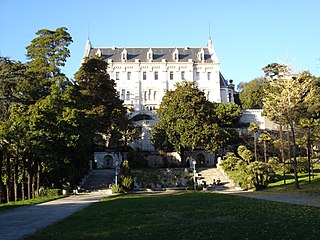
Located in the Valrose district, the castles of Valrose and their park constitute a ten-hectare estate between the Avenue de Brancolar and the hill of Cimiez, north of Nice. It is one of the few large properties in Nice to retain its original dimensions. It now houses the campus of the science training and research unit of the University of Nice-Sophia-Antipolis as well as the headquarters of the latter.
Share
Disclaimer Please be aware of your surroundings and do not enter private property. We are not liable for any damages that occur during the tours.
